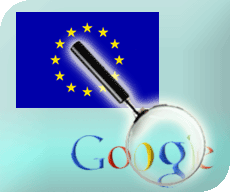EU Examines ‘Customer Profiling’ – Are They Jealous?
 The EU has started an investigation into “customer profiling” on the internet. This is where online services and advertisers collect data on anything from preferences to behavior. From a recent article in the Financial Times:
The EU has started an investigation into “customer profiling” on the internet. This is where online services and advertisers collect data on anything from preferences to behavior. From a recent article in the Financial Times:
Officials say they will collect evidence from consumers and industry on the information commercial websites are collecting and how it is being used. It could result in new controls on online advertisers, internet service providers and networking sites.
EU officials are particularly concerned by the growing use of “deep-packet inspection” technologies that allow broadband providers to track online activity even after consumers have tried to control the use of cookies – which allow websites to monitor browsing patterns. Although not widely used for advertising at the moment, many broadband providers see the technology as a source of future revenues.
EU consumer commissioner Meglena Kuneva claims that people are generally unaware of the data that’s being collected about them, and that it may be impossible to opt out of such activities. Furthermore, she points out that the collection of information about a consumer in exchange for so-called free services amounts to a commercial transaction. I suspect the EU government wants to get involved if for no other reason than to accept the challenge of finding a way to tax free transactions.
But of course, there is no free lunch. This includes the “business models” of Facebook and Twitter. The valuation of those and similar services has always been predicated upon the number and market-addressability of their users. It’s about potential. The idea is: something’s bound to come from all those people gathered in one place. In real life, to make money off such an event, you’d sell them donuts and coffee. But the web isn’t real life.
The highly leveraged difference between the actual value (which could be negative) and the perceived value drives the business of customer-snooping. Build an online service for $5,000, get 100,000 users with an ardent interest in mechanical parrots, and suddenly somebody thinks you’re now worth $5 million. If this service doesn’t charge an access fee or agree to a sprinkling of advertising (or in some other way drive sales), what other valuation is possible?
The EU has a very valid point, and there is history of the EU’s concerns along these same lines. Even recently, the EU has focused on privacy concerns associated with Google’s Street View.
That concern stops at the English Channel, however. In what could only be described as “do what I say, not as I do,” the United Kingdom is trying to get the rest of the EU to carry out even more onerous spying tactics on its citizens. I’d like to hear what type of comprehensive approach to citizen privacy the EU would craft that would include the European government’s own efforts.
It seems to boil down to European governments having a problem with ceding their citizens’ privacy to private companies. But is being protected by Attila the Hun really protection?

 The future of digital experiences will be built by strategists who grasp the full array of emerging business, social, and technical models. Specialties in user experience, branding, application design, and data science are laying the foundation for richer user experiences and business models breakthrough products and revenue based marketing.
The future of digital experiences will be built by strategists who grasp the full array of emerging business, social, and technical models. Specialties in user experience, branding, application design, and data science are laying the foundation for richer user experiences and business models breakthrough products and revenue based marketing.
1 Response to "EU Examines ‘Customer Profiling’ – Are They Jealous?"
May 21, 2010
Thanks for sharing the post.
I like your style. It is wonderful.